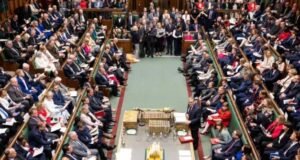One in six jobseekers has their allowance stopped by Department and Work and Pension each year, a national newspaper claims.
The figures contradict official claims that only a small minority of jobseekers have been affected by the government’s increasingly severe welfare policies.
A recent analysis shows that of those unemployed for 12 months up to April 2014, 16.7% faced a financial penalty. The figure for the previous year was 14.8%.
This compares to 7.8% in 2009 and 7.7% in 2010 – the last years of the Labour government.
The annualised figures contrast with the government’s stated monthly sanctions rate of 6% – a figure used to back Whitehall claims that sanctions are imposed only as a “last resort” and on a small number of people.
Two formal complaints have been lodged with the UK statistics watchdog in recent weeks, with the government accused of misleading the public over the extent of sanctions and calls for more robust data to be issued.
Last month, the welfare minister, David Freud, refused to give parliament annualised sanction rates, saying that it was too expensive for the Department for Work and Pensions to provide them.
The Green party, which has been seeking publication of the figures, said: “The DWP clearly has something to hide. It has misrepresented its figures to cover up the full extent of its pernicious sanctions regime.
“The DWP should come clean and provide a true and accurate annual estimate. About one in six jobseekers are being sanctioned and this is taking a terrible toll – not just on jobseekers, but their families and children.”
Sanctions – the financial penalties under which a jobseeker loses unemployment benefits – have become an increasingly important tool as successive governments have tightened welfare rules to demonstrate that they are tough on benefit claimants. The most recent tightening, in October 2012, saw the time limit that a jobseeker could be stripped of benefits rise to a minimum of four weeks and a maximum of three years. In 2013, the absolute number of sanctions issued by jobcentre staff hit the 1m mark.
The government has come under increasing political pressure over its sanctions policy, which has been blamed for causing stress, ill health, hunger and food bank dependency among vulnerable jobseekers and linked to the death of several claimants, including ex-soldier David Clapson.
On 26 July, the government’s official policy board, the social security advisory committee, called for an urgent review of sanctions, pointing out there was no evidence that the system helped get people into jobs.
The committee’s advice echoed the findings of a cross-party MPs’ report in March, which called for an independent review after concluding the current sanctions system was unfair, punitive and ineffective. The government has yet to formally respond.
In January, the Commons work and pensions committee heard independent estimates that as a result of benefit sanctions £275m had been withheld from claimants since 2012.
The DWP criticised the figures, saying they were likely to be an overestimate and insisted that its use of monthly figures was robust. A spokeswoman said: “A monthly figure better reflects the number of current claimants who are subject to a sanction, and is therefore a better estimate at a given point in time.”
Governments have only ever publicly produced monthly figures – which have fluctuated between 3% and 6% each month over the past five years – to illustrate how the scale and impact of sanctions policy change over time. But two complaints, submitted to the UK Statistics Authority, argue that the monthly figure is technically flawed and that by using it the DWP distorts public understanding of the policy.
Don't Miss
- Rizvi rejects move to make July Charter a core principle of constitution
- Khaleda Zia urges govt to ensure advanced treatment for Farida Parveen
- Country’s 95% primary kids exposed to nicotine
- 4 die ‘inhaling toxic gas’ in Moulvibazar tea garden
- July movement’s impact on classes reflected in SSC exam results: Sylhet board chairman
 Weekly Bangla Mirror | Bangla Mirror, Bangladeshi news in UK, bangla mirror news
Weekly Bangla Mirror | Bangla Mirror, Bangladeshi news in UK, bangla mirror news








